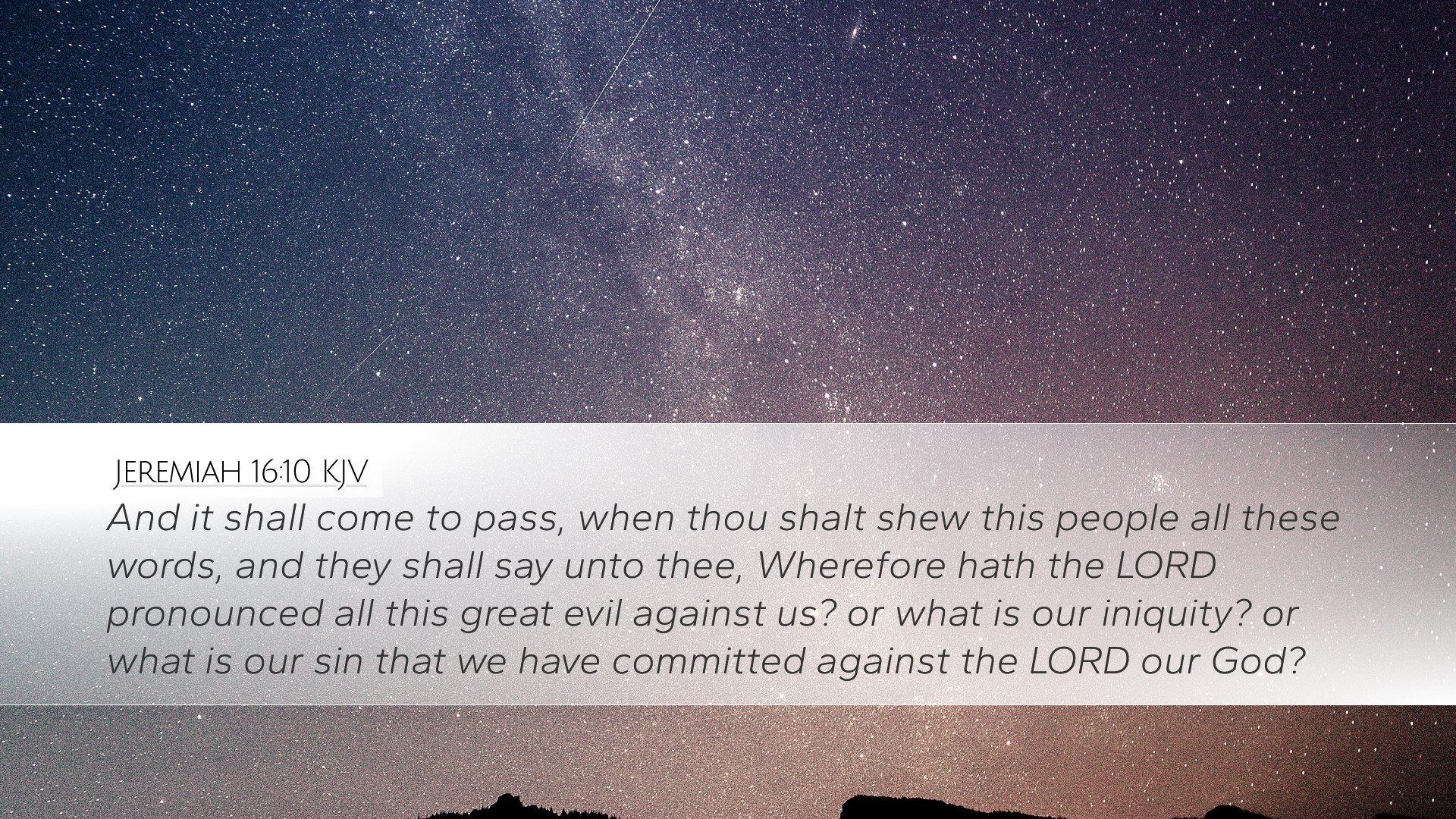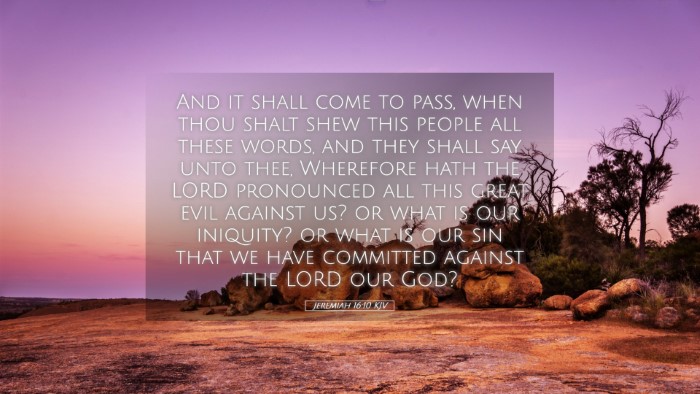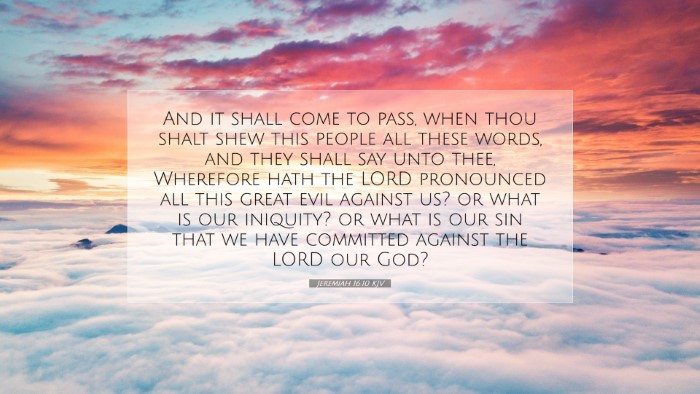Bible Commentary on Jeremiah 16:10
Verse: "And it shall come to pass, when thou shalt show this people all these words, and they shall say unto thee, Wherefore hath the LORD pronounced all this great evil against us? or what is our iniquity? or what is our sin that we have committed against the LORD our God?" (Jeremiah 16:10, KJV)
Introduction
Jeremiah 16:10 serves as a pivotal verse in the prophetic book of Jeremiah, illustrating the deep-seated concerns of the Israelite people regarding God’s judgment. The prophet Jeremiah is tasked with confronting the people about their sins and the resultant judgments initiated by God. It encapsulates their astonishment, confusion, and inquiry regarding the reasons for their suffering.
Contextual Background
The historical context of Jeremiah is crucial. Jeremiah prophesied when Judah faced impending exile due to rampant idolatry, moral decay, and abandonment of covenant relationships with God. His mission was not merely to pronounce judgment but also to call the people to repentance. The sentiments expressed in Jeremiah 16:10 reflect a common response to prophetic messages, where the audience questions the motives of God, seeking to understand the root causes of their plight.
Insights from Commentaries
-
Matthew Henry:
Henry emphasizes the significance of the people’s inquiry, suggesting that their questioning reflects a profound misunderstanding of their covenant relationship with God. They appear oblivious to the severity of their transgressions which accelerated divine wrath. Jeremiah is appointed to reveal the depth of their sins and their ultimate consequences, which requires him to patiently educate the people about God's righteous standards.
-
Albert Barnes:
Barnes elucidates that the phrase "great evil" signifies not just physical calamity but also spiritual disengagement. The people's questions reveal a tendency to externalize their struggles, searching for reasons outside of their conduct. They perhaps fail to recognize that their iniquity and rebellion against God have incurred the judgment being experienced. Barnes explains that this dialogue highlights the importance of self-examination and understanding one’s role in covenant faithfulness.
-
Adam Clarke:
Clarke offers a more analytical perspective on the nature of these inquiries made by the people. He points out that their lack of recognition regarding the real issues of sin demonstrates a spiritual blindness. Clarke notes that their queries concerning God's dealings reveal a reluctant acceptance of responsibility. He emphasizes that Jeremiah, as God’s messenger, must not only disclose God’s judgment but also elucidate the terms of restoration, offering hope amidst the sobering warnings.
Theological Implications
This verse raises significant theological questions about divine justice and human responsibility. The human tendency to question God’s motives in times of hardship showcases a lack of understanding of divine holiness and human sinfulness. Within this context, it becomes evident that acknowledging culpability is the first step towards repentance and restoration. The inquiry also opens a dialogue about the nature of prophecy and the role of the prophet as a mediator between God and people.
Application for Today
For contemporary believers, this passage serves as a reminder of the importance of humility in assessing personal and communal sinfulness. It encourages an earnest examination of life in the light of God’s Word. Pastors and theologians can utilize this text to challenge congregations to move beyond superficial understandings of sin and to foster deeper discussions about accountability before God.
Moreover, it encourages a pastoral approach to guiding the flock, where inquiry is welcomed, and understanding of God's nature is deepened through teaching. The necessity of teaching God’s Word faithfully becomes paramount, as it equips the people to recognize their standing before God.
Conclusion
Jeremiah 16:10 serves both as a warning and an invitation. While it alerts Israel to the reality of their situation, it simultaneously beckons them to engage in serious reflection about their covenant with Yahweh. Through the insights provided by various commentaries, we glean that this inquiry into sin and judgment is indicative of a greater dialogue that invites repentance, restoration, and renewed faithfulness to God.


